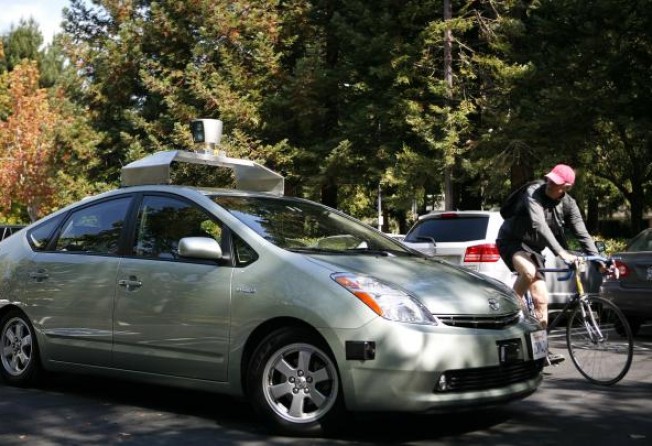Self-driving car is tested by scientists in UK
Researchers test-run computer and laser system that is destined to take strain out of motoring

Scientists at Oxford University have developed a self-driving car that takes on tedious driving tasks such as negotiating traffic jams or navigating a regular commute.
The new system has been installed in a Nissan Leaf electric car and tested at up to 64km/h on private roads around the university. Researchers hope the cost of the system can be brought down to £100 (HK$1,200) and it can be fitted to existing models.
The car alerts the driver when it is ready to take control, and by pressing a button on a screen the driver can let the computer take the strain.
Search giant Google has been working on self-driving cars for years, and has now won approval for their use in the US states of Nevada and California.
The Oxford system has been demonstrated on public roads and as long as there is a licenced driver "there's no obvious legal barrier to using it on roads now", said Professor Paul Newman, who led the research. "It's essentially an advanced driver assistance system."
Martin Spring, who co-authored a paper on the potential of driverless cars, said: "As with many technologies, the early implementation will try to mimic what has gone before. But once you shake off the constraint of it having to look like a car, you can envisage a very different vehicle - it could look like a small room where people do what they want while the car is moving.
"And if you don't need lights to navigate, you don't need street lights. Or headlights."
Newman thinks it could be only 15 years before self-driving systems become commonplace in cities as the price of installing the systems drops. "At present it costs about £5,000, but we're working to reduce that to £100," he said.
Instead of using GPS navigation systems, which can be unreliable in cities where "urban canyons" caused by buildings block signals, the British-developed system uses 3D laser scanning allied to computer storage to build a map of its surroundings which is accurate to a few centimetres. The auto-drive system works by recognising where it is, based on a laser scanner on the front of the car, comparing its surroundings to its stored data.
That's different from Google's system, which uses a combination of GPS, laser guidance - from a roof-mounted laser - and mapping to determine its location and route.
The Oxford system, developed through funding from the Engineering and Physical Sciences Research Council, could be extended so each car downloads data from passing cars, or over the internet via 3G and 4G connections to a central system.
Larry Page, Google's chief executive, believes self-driving cars have economic and health benefits. He says they should cut road deaths - either through drivers' lack of attention or through driving too close to other cars - and traffic would flow better.